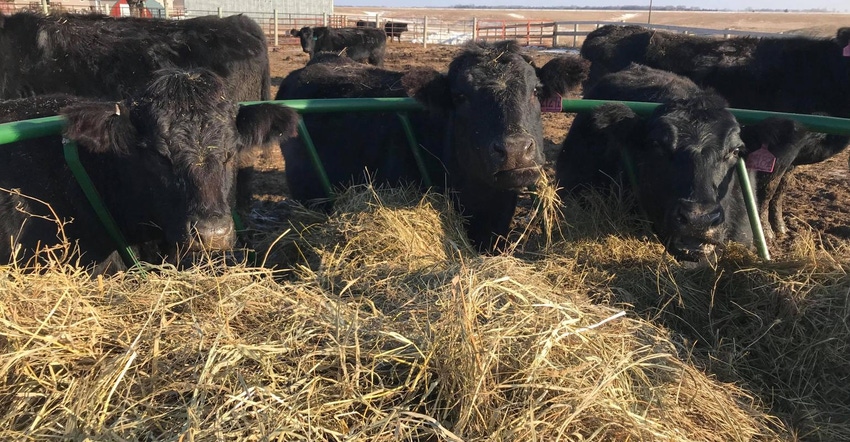Why a ban on fur & foie gras should matter to ranchers
Activists continue to erode animal use in U.S. society with new laws passing in California and New York City.
November 5, 2019

We are living in troubling times, my friends.
Politicians want to tax farmers and ranchers for emissions and slap sin taxes on meat to encourage plant-based diets. Celebrities are spinning faux science into meatless propaganda in the name of compassion to animals and the planet.
Packers are investing in plant-based protein companies. Farm bankruptcies are on the rise. Animal agricultural organizations are getting into bed with animal rights and environmental activist groups.
From a beef producer’s perspective, I sometimes wonder what my future looks like in this business. From a consumer’s perspective, I wonder if meat will always be available to me, or if the opposing side will ultimately win.
Just the other day, I received a hateful email from someone who expressed great joy that my viewpoints about ruminant animals benefitting the planet were archaic. With glee, she compared me to a dinosaur and said she was hopeful that people like me would one day cease to exist.
This person, was of course, threatening my life and wishing for me to be wiped off the face of the earth because of her love and compassion for a beef cow. It’s highly ironic the hateful things one person can say to another in the name of saving the life of an animal.
But it doesn’t stop with just hateful words from trolls.
These days, our ability to utilize an animal from nose to tail is being taken away, inch by inch, in the form of new laws.
For example, California became the first state to ban fur. In October, Governor Gavin Newsom signed AB44 into law, banning the sale of new clothing and accessories made of fur.
According to an article in the New York Times, “For the purpose of the law, fur is defined as ‘animal skin or part thereof with hair, fleece or fur fibers attached thereto.’ For the purposes of shoppers, that means mink, sable, chinchilla, lynx, fox, rabbit, beaver, coyote and other luxury furs.
“Exceptions have been made for cowhide, deerskin, sheepskin and goatskin. Which means that shearling is totally fine. Exceptions have also been made for religious observances (shtreimels, the fur hats often worn by Hasidic Jews, can continue to be sold) and other traditional or cultural purposes.
“Keith Kaplan, of the Fur Information Council of America (F.I.C.), issued the following statement after the California news broke: ‘This issue is about much more than animal welfare in the fur industry. It is about the end of animal use of any kind. Fur today, leather tomorrow, your wool blankets and silk sheets — and meat after that.’
READ: The California fur ban and what it means for you
In New York City, a ban on foie gras is currently being considered. If passed, more than 1,000 New York City dining establishments that serve foie gras will be impacted, in addition to the duck and geese farmers operating in the state of New York.
According to an article published in Eater, “For years, fur and foie gras have been among the most contentious issues in the animal welfare debate. Foie gras is far from the only cuisine subjected to bans — horse meat, shark fins, beluga caviar and unpasteurized milk are some of the foods barred in numerous states due to concerns over ethics, animal endangerment, or public health.
“But foie gras producers say they have been unfairly targeted. They argue that the foie gras sector is ‘low-hanging fruit’ because the industry is small, it is linked to the elite, and misinformation has skewed public perception of duck farms.”
READ: NYC’s possible foie gras ban could kill the American foie industry
These are just two examples of how activists are hoping to curtail and eliminate the use of animals in our everyday lives. More than just taking meat, dairy and eggs off the dinner table, this would mean no more by-products. Cattle, pigs and sheep provide hundreds of beneficial products that enrich our lives, ranging from makeup to crayons to soaps and even pharmaceuticals.
This is dangerous territory and a slippery slope, indeed. First they come for the horses, then the egg-laying chickens, then the gestating pigs, then the fur, then the foie gras…what’s next? Veal? Pets? Leather? Pig’s life-saving heart valves? Meat altogether?
I may not eat foie gras, and I may not wear fur. But I do own animals — both livestock and pets — and these laws aim to erode the very foundation and principles upon which ownership of animals is based upon. Be leery of politicians who aim to take away your rights in the name of compassion to animals. I know I am!
The opinions of Amanda Radke are not necessarily those of beefmagazine.com or Farm Progress.
About the Author(s)
You May Also Like




.png?width=300&auto=webp&quality=80&disable=upscale)
